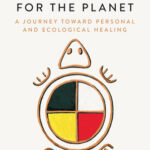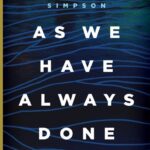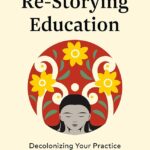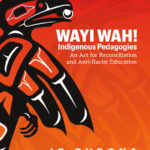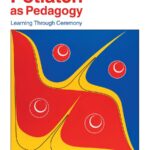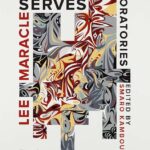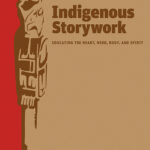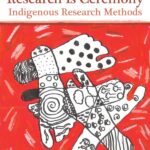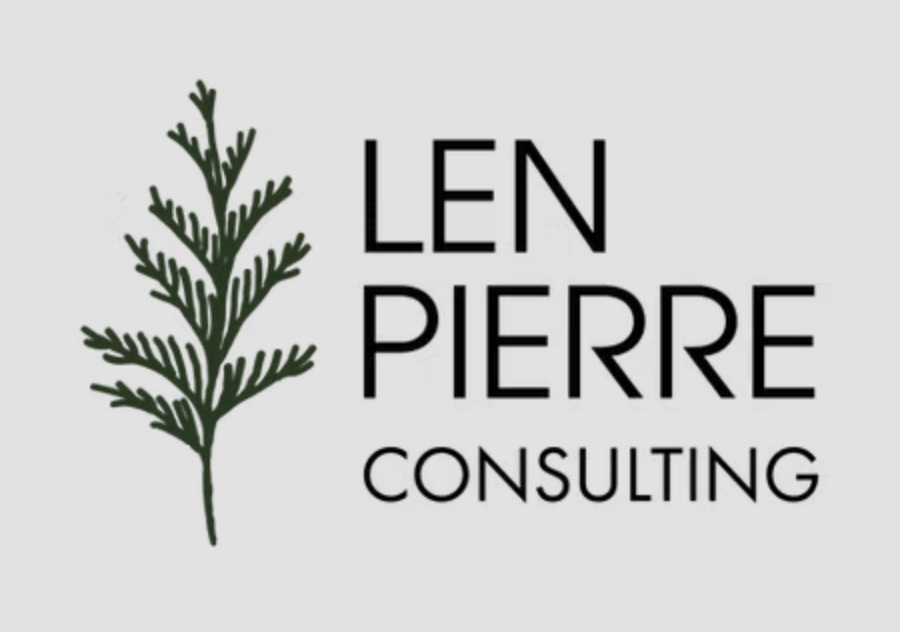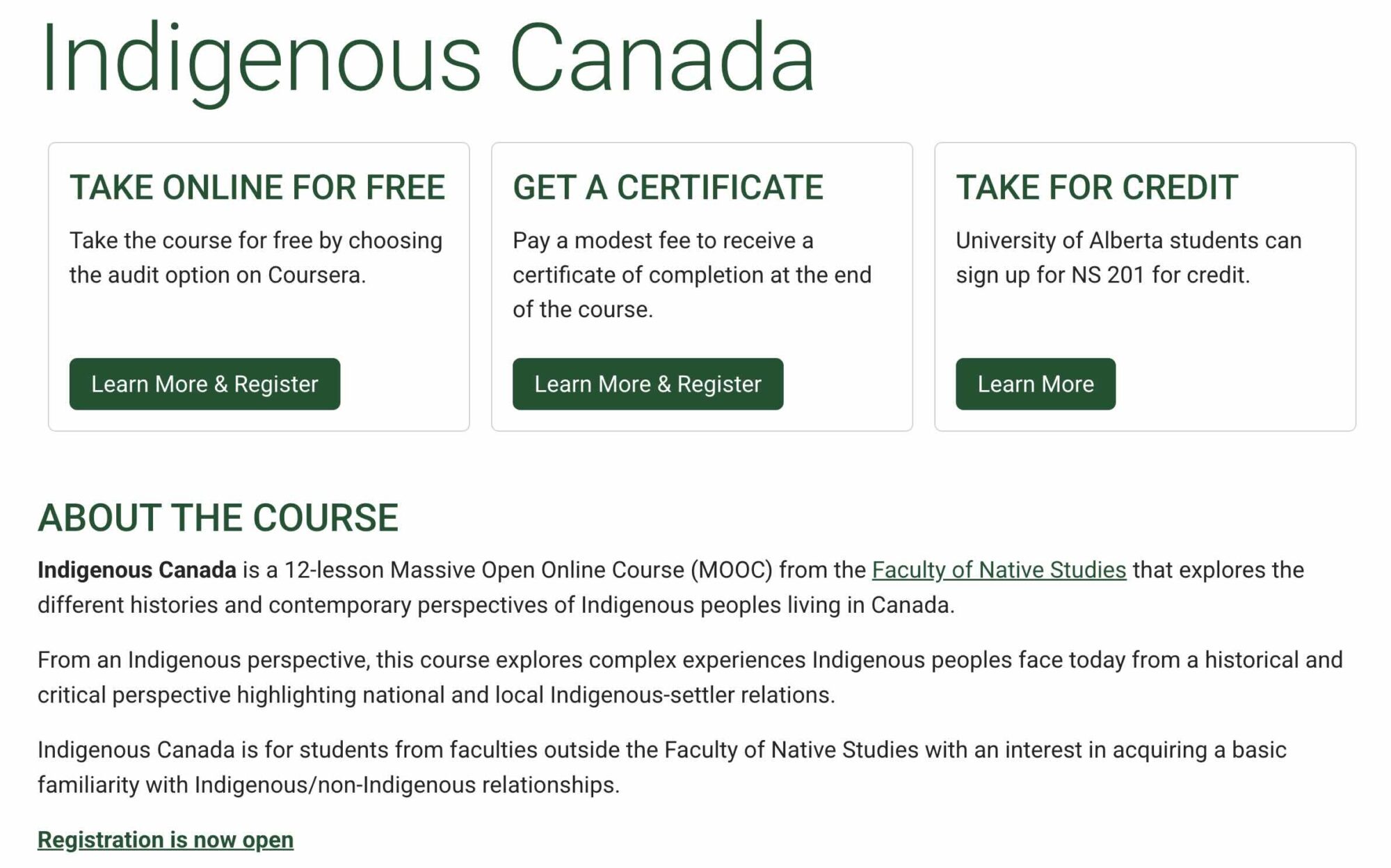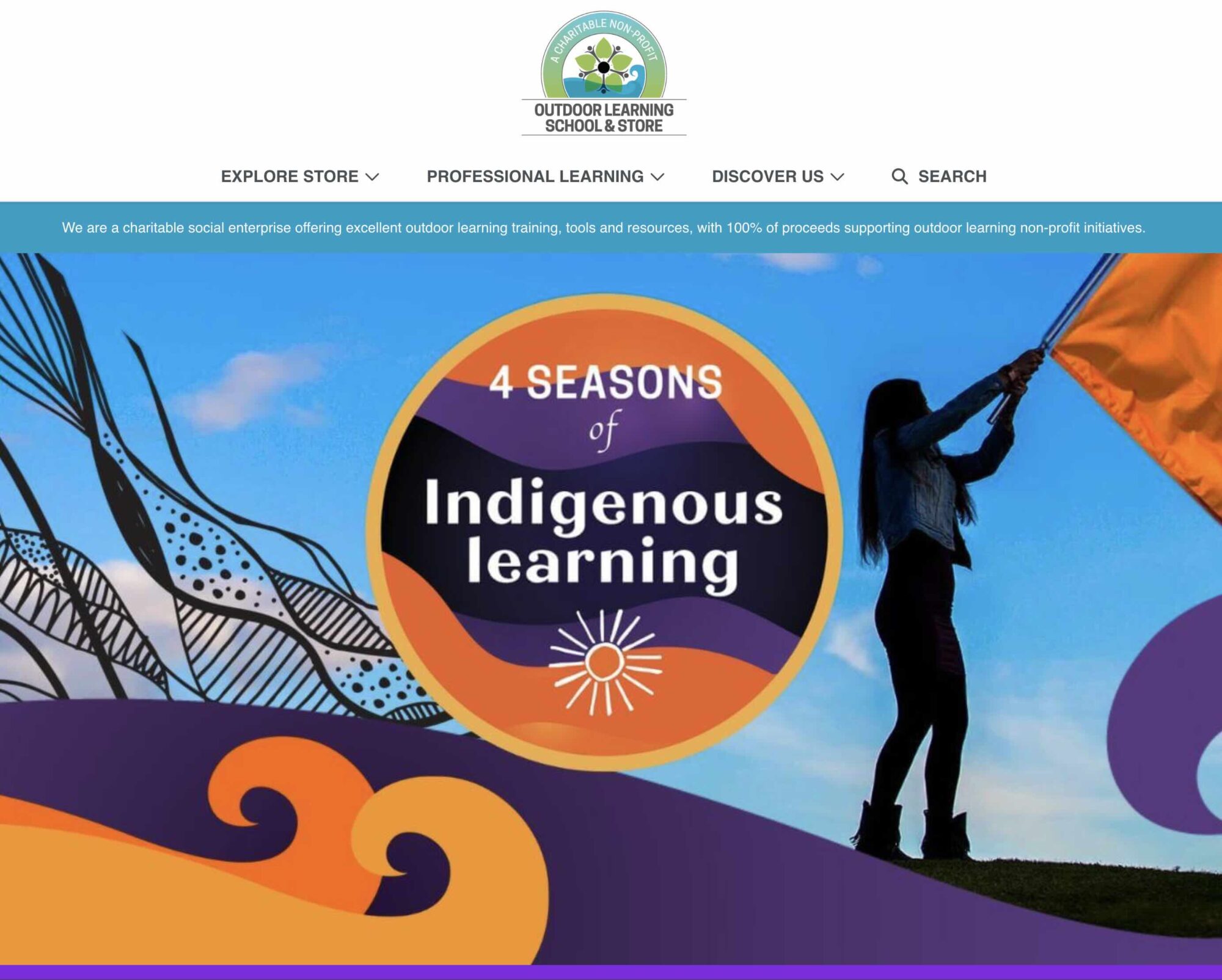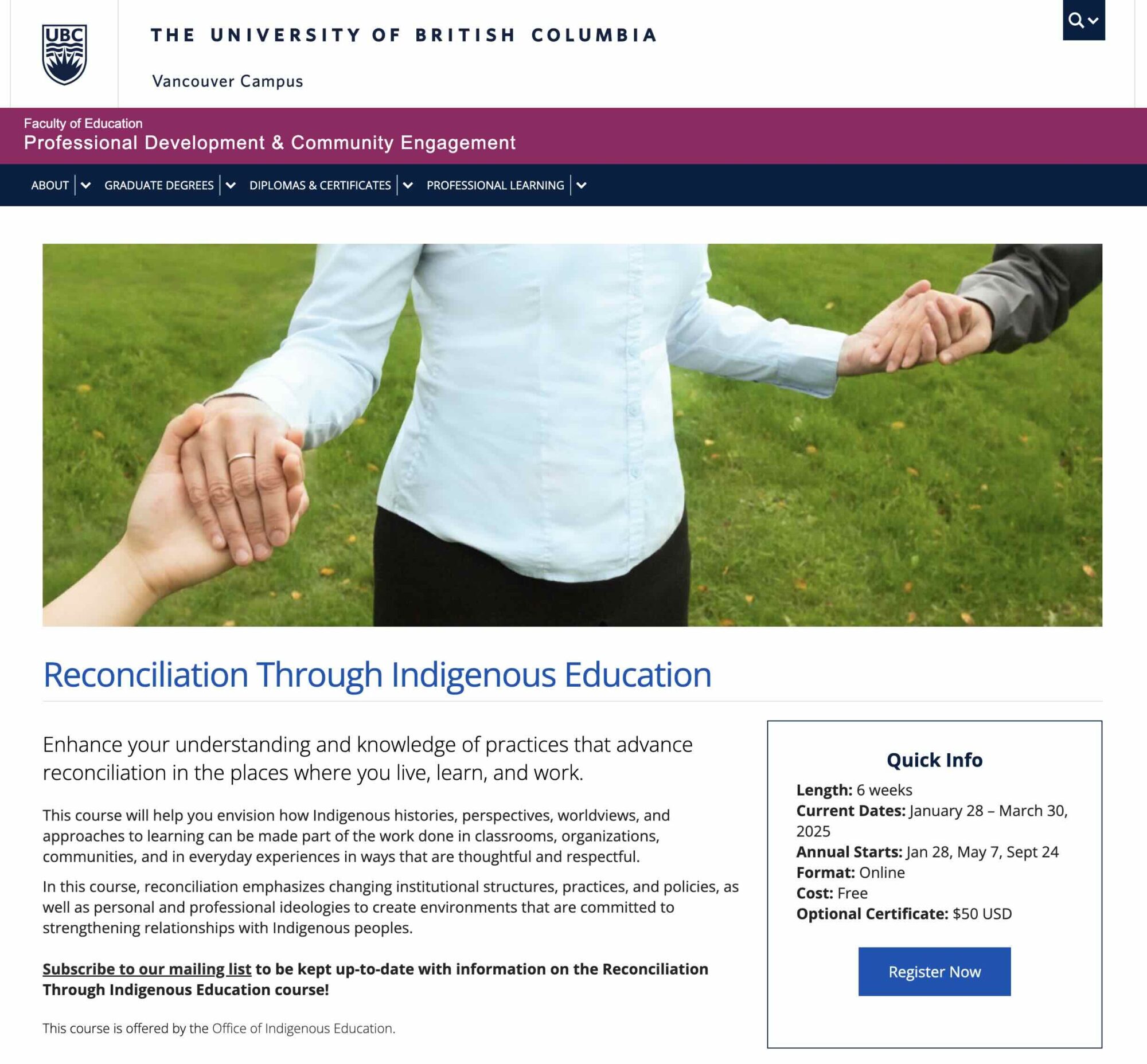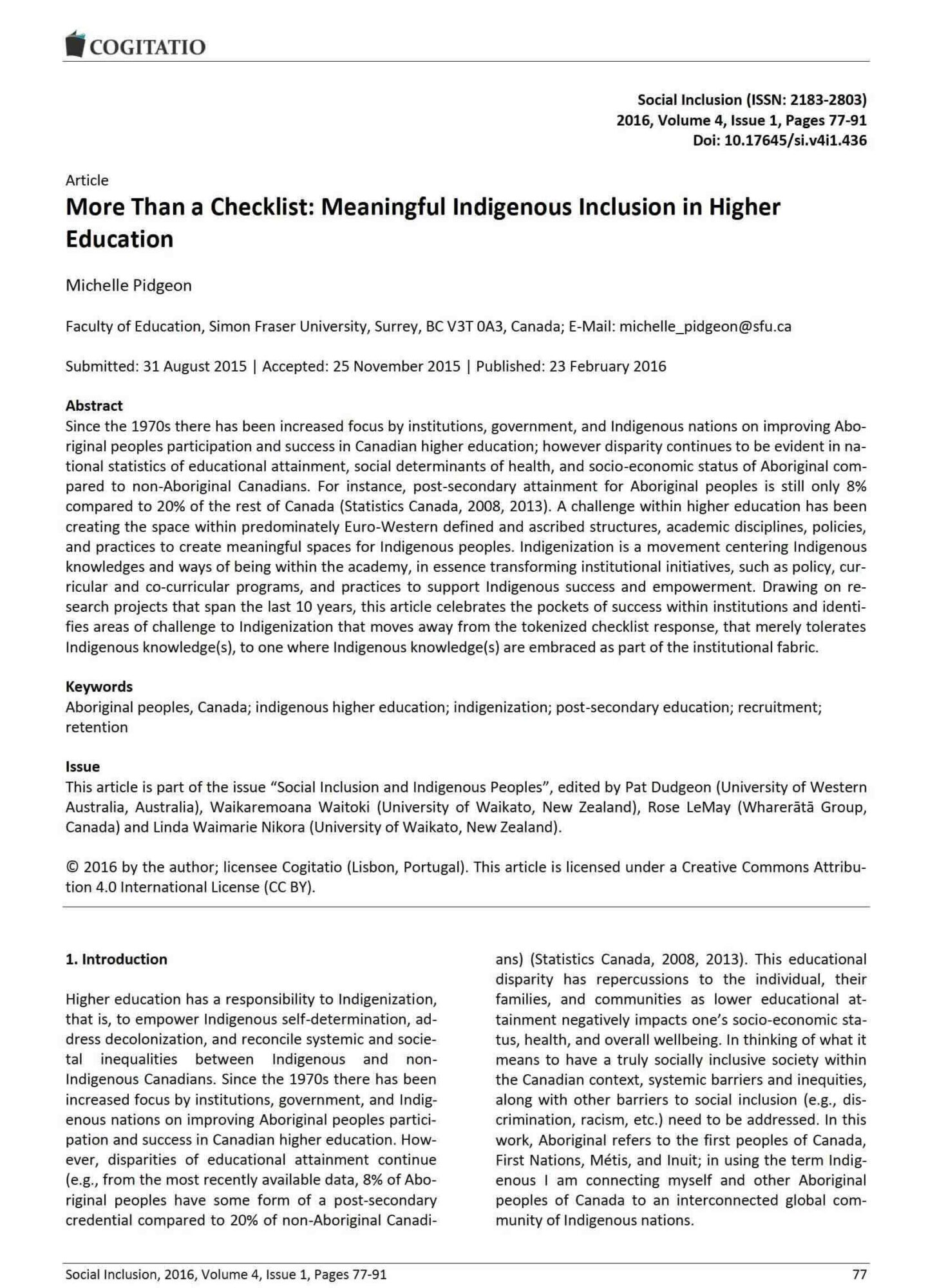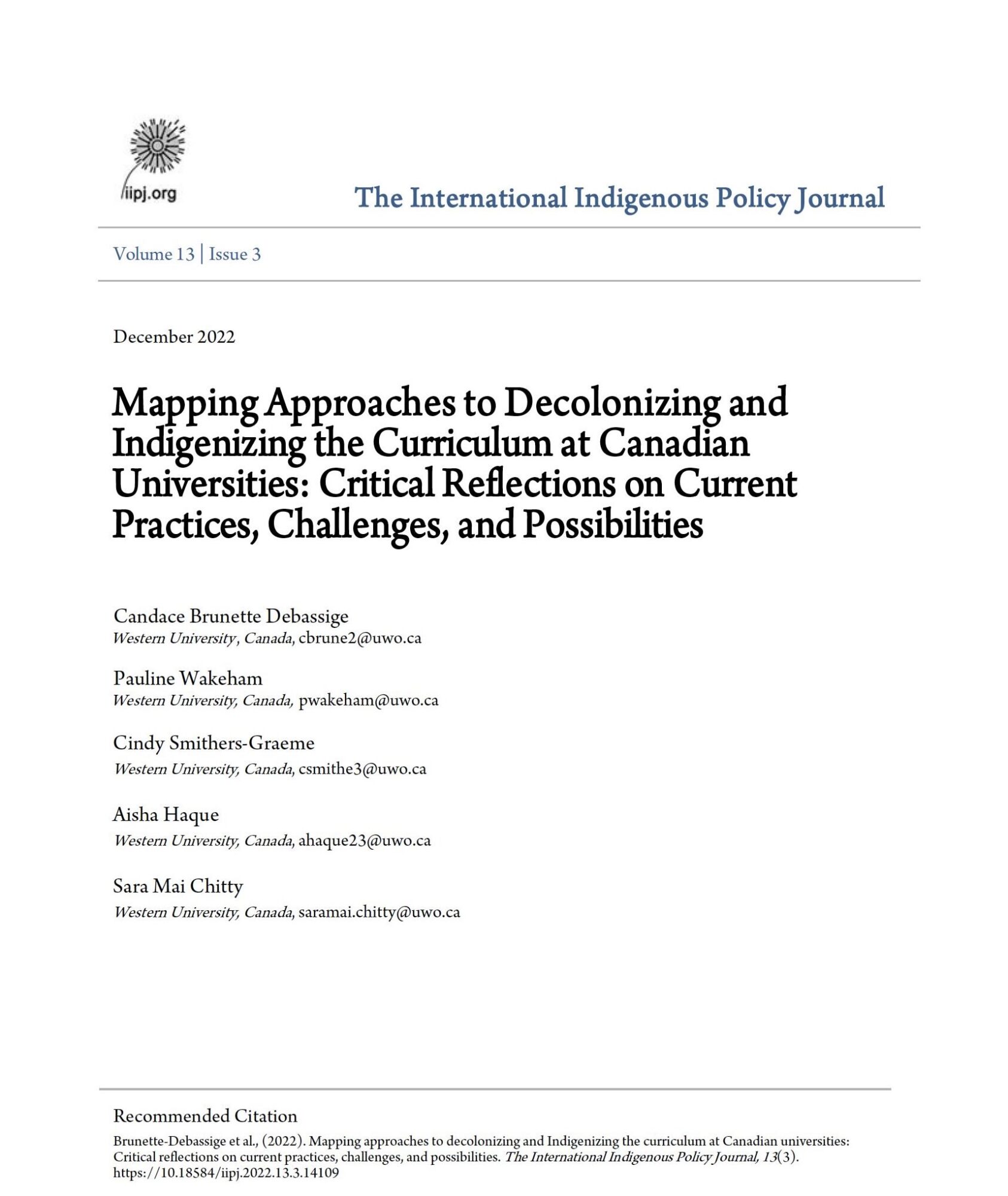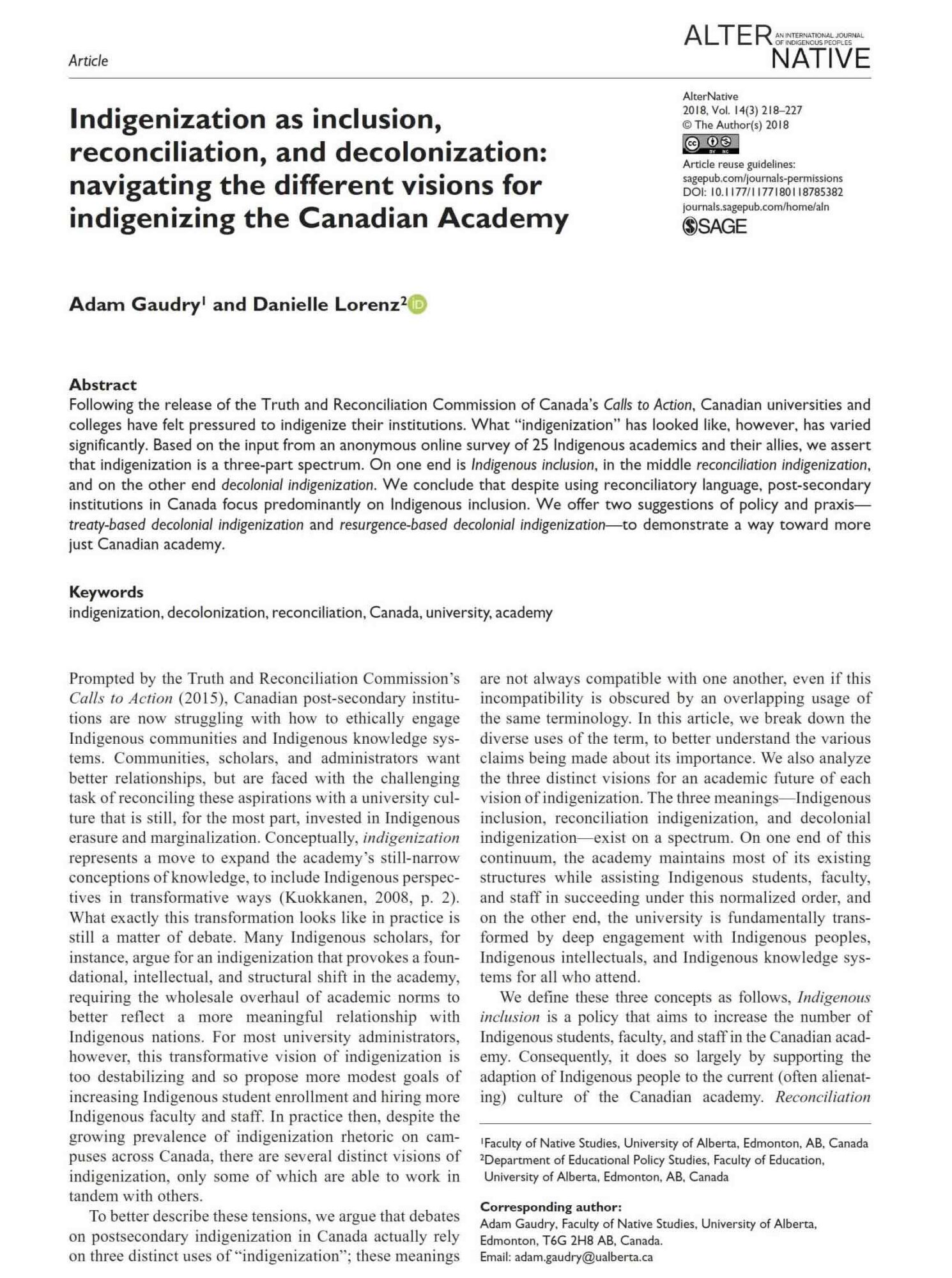Ocean
Deepen your decolonial work
Time is an ocean, present and eternal. We are adrift on that ocean of possibility, you and I, and the miracle is that we find each other at all.
richard wagamese
SECTION 3 – OCEAN
This section of Decolonizing Educational Practices includes information on creating an action plan, relational teaching practices, anti-racism, books by Indigenous authors, professional development opportunities, and future work in decolonizing and Indigenizing higher education in Canada.
Create an Action Plan for xéʔelɬ
Meet with your department to the discuss the six xéʔelɬ pathways, and how you can act on them. You can use sticky note brainstorming, where everyone generates ideas for each of the six pathways and posts them on a shared wall or board. Then they can be discussed in turn. Alternatively, six smaller groups can be formed (based on interest), where each group discusses one of the six pathways. Then everyone shares with the larger group.
Make sure your recommendations are clear and action oriented. While you might invite someone from Indigenous Studies to help guide this process, we must recognize that they are extremely busy with requests. As settlers, it is important to move this work forward even when we do not have direct guidance. The path is always here to walk.
Below is the Action Plan from The Learning Centres. Click here for another example from Employment and Community Studies.

Relational Teaching Practices
Implement decolonial teaching methods, such as community-based learning, identity exploration, research is ceremony, and reciprocity.
Avoid “I do, we do, you do”
As Carolyn Roberts discusses in her 2024 book Re-Storying Education: Decolonizing Your Practice Using a Critical Lens, a colonial, or assimilative, approach to education emphasizes that there is one right answer and one way to do things. Students are shown how to learn, they do this together, and then they do the work on their own. If they mimic the instructor, they will get a good mark. Unfortunately, this deters creative and innovative thinking. You can disrupt this hierarchical model by using a learner-centered framework, where student ideas, creativity, and approaches are welcome—if not vital—to the learning process.
Identity Exploration
Exploring one’s identity is a powerful practice. Have learners share stories of their ancestry, question the dominant colonial paradigm, and consider their roles in decolonization. Facilitate dialogue and open discussion where learners can share, in a supportive environment, who they are, how they are feeling, and curiosities they have about their educational journey. Design activities and assignments relevant to the learners in your course where they have input on project topics that cultivate authentic and meaningful experiences. Inquiry-based learning can be a guide here.
Research is Ceremony
Shawn Wilson’s work in Indigenous research methods invites us to build in relational accountability into our methodology. We can encourage learners to contextualize their research (and our own) in community. Approach research with family, friends, and the land with an integrity based on relationships. Be accountable to these relationships. Understand that knowledge is relational and should be shared with all community members. In data analysis and articulating results, have students engage in discourse other than written, such as oral, visual, or other creative modalities.
Community-based Learning
Connect course themes, experiences, and assignments directly to the local community. Develop service learning, co-op, community action projects, or apprenticeship possibilities for learners such as the work placement in ARTS 4800 Practicum. Place-based learning is a synonym for community-based learning. Check out KPU Wild Space’s website for more information on how to engage with this work.
Reciprocity
Build-in a sense of responsibility and stewardship into your courses. Connect with your local community. Have a strong connection to place. Ask students how they can offer something back to the place they live and learn, and have taking this action be part of the course experience. Robin Wall Kimmerer can be a guide here, as illustrated in the quote below from her book Serviceberry: Abundance and Reciprocity in the Natural World.
What could I give these plants in return for their generosity? I could return the gift with a direct response, like weeding or bringing water or offering a song of thanks that sends appreciation out on the wind. I could make habitat for the solitary bees that fertilized those fruits. Or maybe I could take indirect action, like donating to my local land trust so that more habitat for the gift givers will be saved, speaking at a public hearing on land use, or making art that invites others into the web of reciprocity. I could reduce my carbon footprint, voice on the side of healthy land, advocate for farmland preservation, change my diet, hang my laundry in the sunshine. We live in a time when every choice matters.
Robin Wall Kimmerer
Anti-Racism Work at KPU
The Task Force on Anti-Racism was created to provide institutional support and change, with a focus on intersectional social justice, systemic oppression, and racial equity. Their report and recommendations resulted in the creation of the Office of Anti-Racism. This office challenges systemic barriers at KPU and increases awareness of race, racism and anti-racism for students and employees. They host an annual anti-racist symposium and are available for consultation and support. Click here to visit the resources page of the Office of Equity and Inclusive Communities (OEIC), and read their LibGuide here.
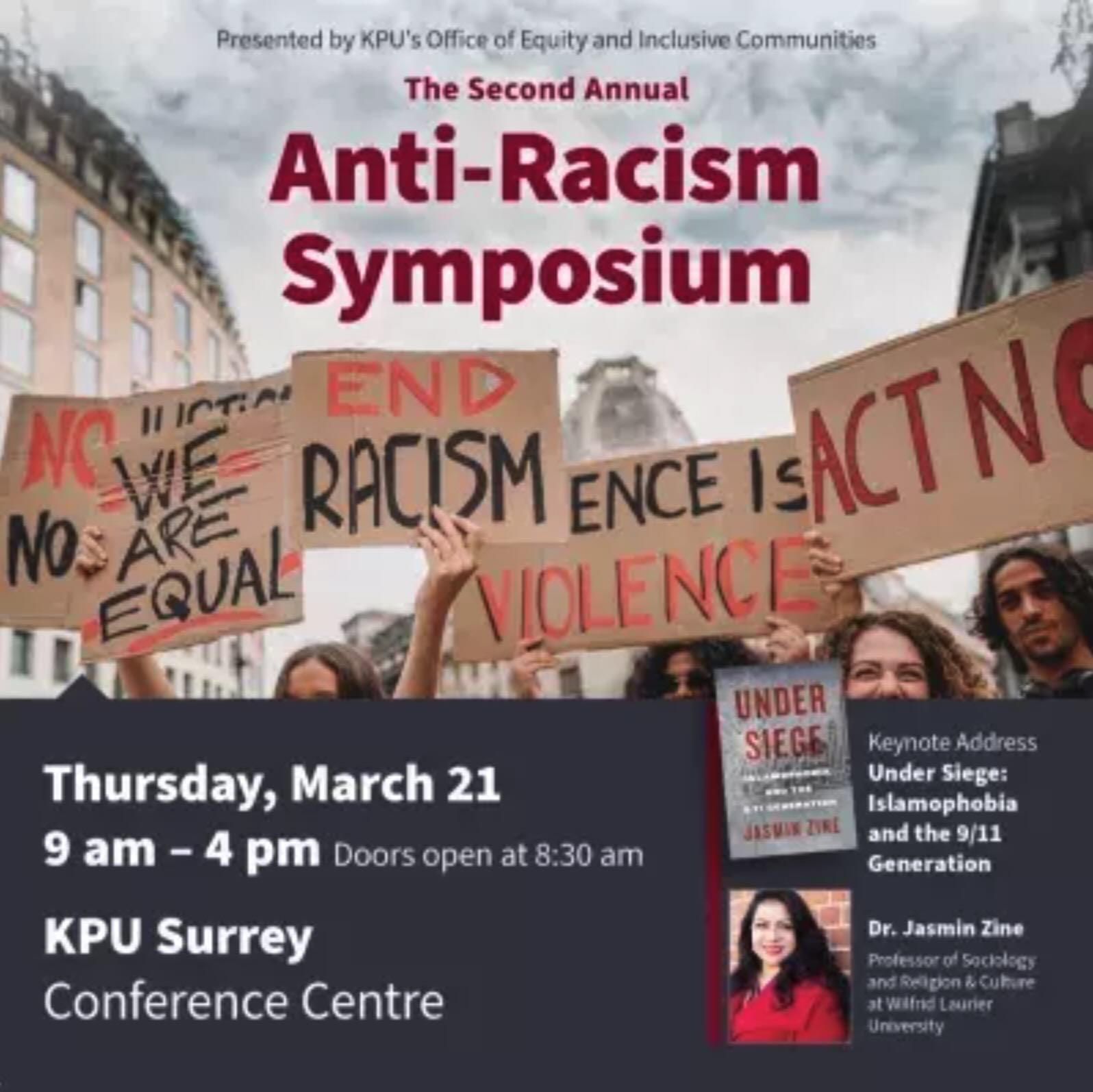
The executive summary of the Task Force states:
“Anti-racism work cannot be done without challenging the colonial context in which universities have historically operated. All anti-racism work must be done within a decolonial framework and in consultation with Indigenous communities and Elders. As such, the TFA’s Final Report and Recommendations should work in alignment with KPU’s xéʔelɬ – Pathway to Systemic Transformation document.”
Books by Indigenous Authors
These eight books, written by local (often from BC) Indigenous authors, were chosen based on their relevance to decolonizing educational practices. More details are provided below, including a key quote from each book. Scroll through to see them all. Click title to purchase.
Local bookseller Massy Books carries all these books for purchase.
Switching from Bloom to the Medicine Wheel
Creating learning outcomes that support Indigenous ways of knowing in post-secondary education by Marcella LaFever
This article, written by a settler, provides a framework that expands the mental, physical and emotional domains of Bloom’s taxonomy of learning to include the addition of the spiritual domain. This better aligns with the four-quadrant Medicine Wheel. LaFever outlines the importance of honouring, attention to relationships, sense of belonging, feeling empowered, and self-knowledge of purpose as part of the spiritual domain. Assessment and learning outcome considerations connected to spirituality are addressed. She also considers the challenges of doing this work as a non-Indigenous researcher.
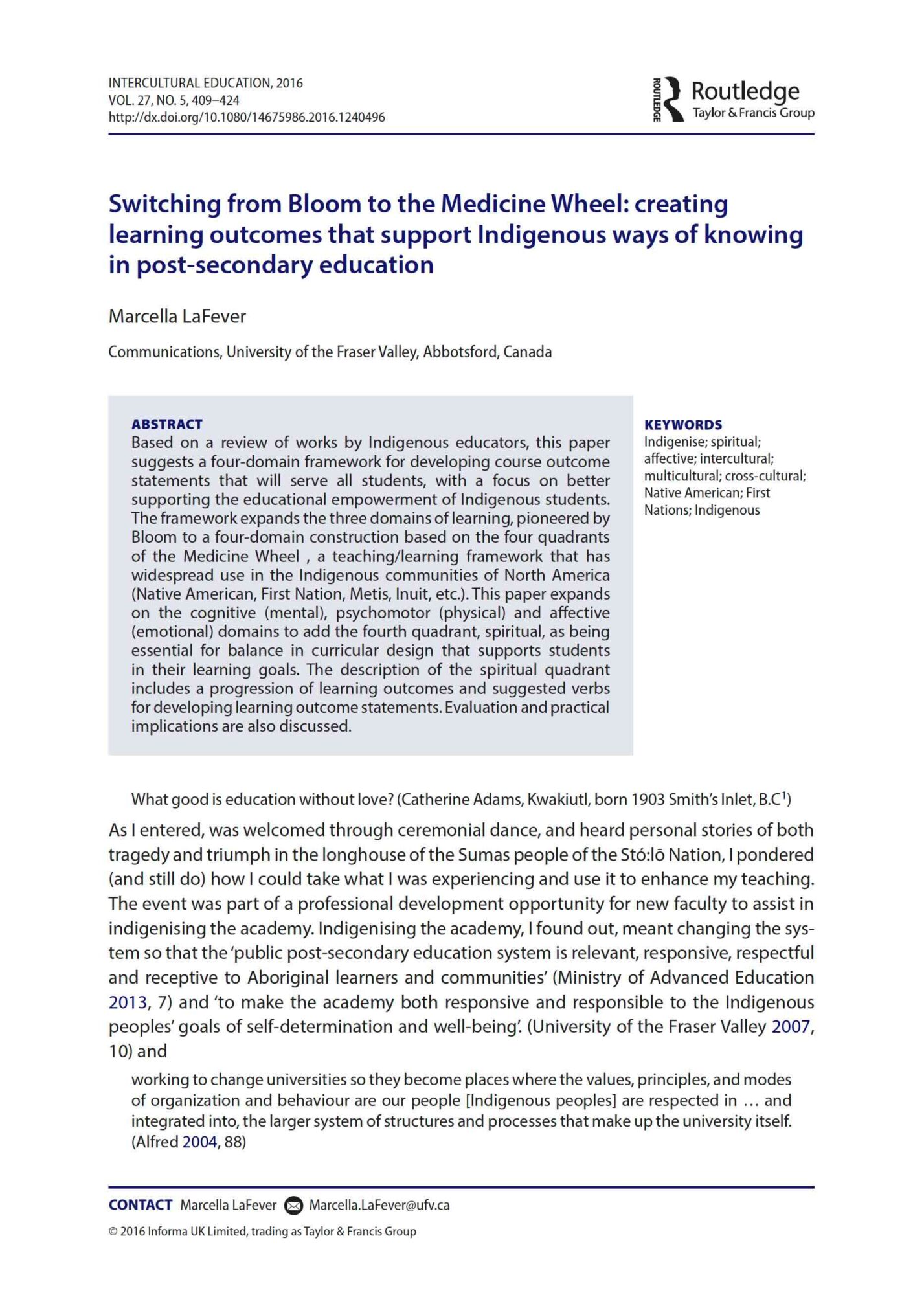
Online PD Opportunities offered by Indigenous Leaders
Len Pierre Consulting has a series of paid programs on Introduction to Indigenous Cultural Safety, Indigenous Trauma & Equity Informed Practice, Indigenous Allyship and Anti-racism Training, and Working in First Nations Communities.
Indigenous Canada is a free, 12-lesson massive open online course. Developed by the Faculty of Native Studies at the University of Alberta, it covers a wide range of topics: Indigenous-settler relations, fur trade, land claims, legal systems and rights, contemporary Indigenous life and art, Indigenous women, and more.
4 Seasons of Indigenous Learning is an annual offering separated into four seasons: (1) ‘Foundations of Knowledge’ on Indigenous culture and perspectives, (2) ‘Learning from the Land’ to strengthen connection to local lands, (3) ‘Reciprocal Relationships’ and (4) ‘Reflective Action.’ Content is created by Robin Wall Kimmerer, Jo Chrona, Gregory Cajete, and many others.
Reconciliation Through Indigenous Education is a free, 6-week online course focused on educators. Developed by UBC, this course explores ways to support Indigenous learners and create equitable learning spaces. Topics include deepening understanding of colonialism, Indigenous worldviews that inform classroom learning, and the current realities of Indigenous peoples.
Additional Articles on Indigenization
Here are three articles on Decolonizing and Indigenizing at Canadian Universities, recommended by Natalie Wood-Wiens. Click image to download PDF.
Indigenous Futurities in Curriculum
The Journal of Curriculum Theorizing has a special Issue on Indigenous Futurities in Curriculum
https://journal.jctonline.org/index.php/jct/issue/view/121

For those looking for rematriating curriculum, this special issue offers a series of papers relevant to Indigenous futurities that “refuse to see conquest as inevitable and, instead, imagine and actively work toward a present and future in which Indigenous Peoples, lands, and lifeways thrive.” The articles explore working against settler futurities, curriculum that upends settler colonialism, learning from Indigenous motherhood, and Indigenous epistemologies and partnerships.
“All your words are in the wind now. We’re going to see where it goes now. We’re going to see who grabs on.”
elder lekeyten

